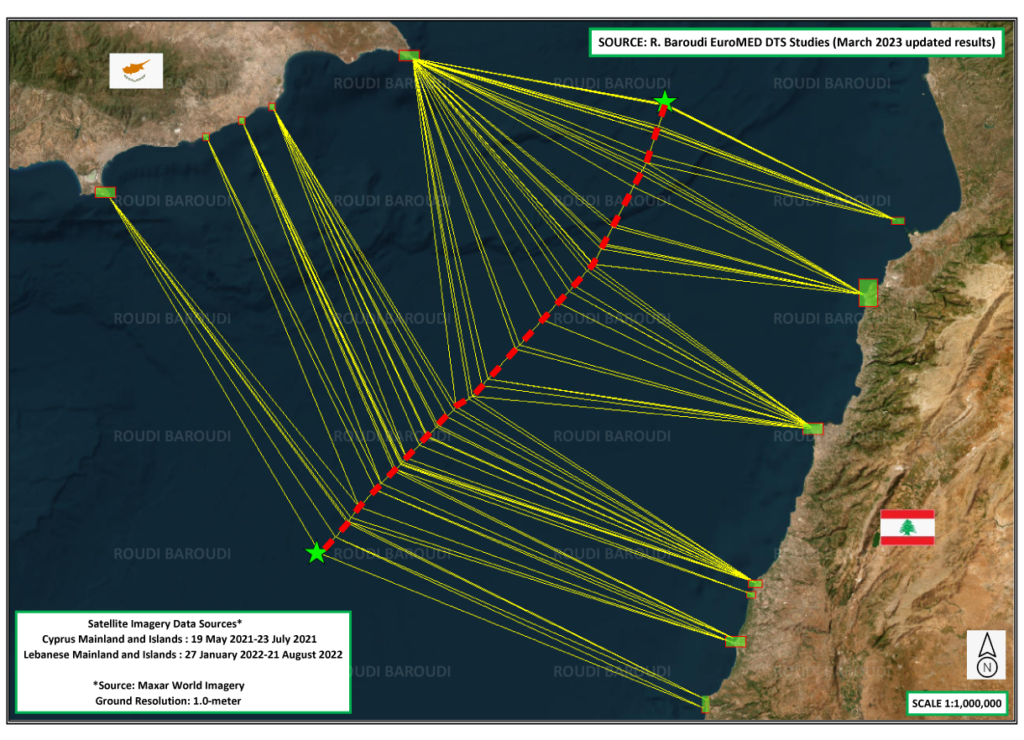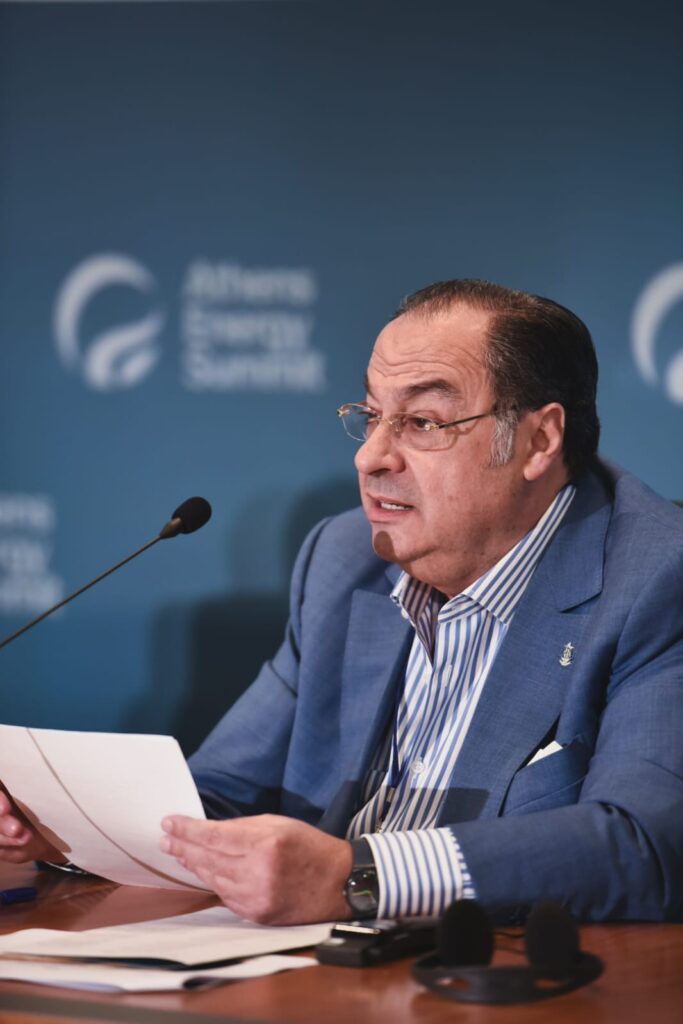
ATHENS, Greece – June 25, 2023: Lebanon should follow up last year’s maritime boundary agreement with Israel by seeking similar deals with Cyprus and Syria, a regional energy expert told a high-profile energy conference in Athens on Wednesday.
“Lebanon should be pursuing open and unbiased dialogues with both of these neighbors, and the parties should continue the talks until their boundaries are fully mapped and officially settled,” said Roudi Baroudi, CEO of Energy and Environment Holding, an independent consultancy based in Doha, Qatar.
Speaking to an audience of industry leaders and senior government officials at the Athens Energy Summit, Baroudi cited several reasons to prioritize such agreements, including the fact that Lebanon and Syria have each “designated offshore oil and gas blocks that overlap by considerable margins.”
“If these are not rectified, the results could mean that investors will stay away from both sides, or they will slow-walk their exploration activities, or even that relations could deteriorate,” he told the audience. “Any one of these developments would undermine the interests of all concerned.”
Baroudi rooted his remarks in the need for coastal states to abide by the rule of law, in particular the United Nations Convention on the Law of the Sea (UNCLOS).
“The UNCLOS rules are available to all, their interpretation has been further defined by court verdicts, arbitration, and bilateral treaties, and the technology required to determined fair boundaries is within the financial grasp of virtually all states,” he explained. “What this means in practice is that governments can know in advance what a court or an arbitrator would say about their maritime boundary claims. So long as there is good will on both sides, this radically simplifies the process.”In addition to protecting their own interests, Baroudi argued, Lebanon and its neighbors would also be setting a useful example for other Mediterranean countries.
He pointed specifically to the case of Turkey, Greece, and Cyprus, where the absence of settled Turkish-Cypriot and Turkish-Greek maritime boundaries threatens to block a planned pipeline that would carry East Med gas to mainland. That project is seen as a crucial for Europe’s plans to replace energy imports from Russia, which have been sharply curtailed since the latter’s 2022 invasion of Ukraine, but the CEO of Italian energy giant Eni recently warned that it would not go forward without Turkish approval.
“The Turks, the Greeks, and the Cypriots disagree about many things, but they also have a shared interest in both economic development and, therefore, in the stability required to accelerate it,” Baroudi said. “UNCLOS provides a reliable mechanism, rooted in science and a rules-based application thereof, which could provide the framework for them to start discussing their differences in a controlled manner.”
Baroudi’s presentation also included the unveiling of several exclusive maps he commissioned from one of the world’s leading providers of high-precision mapping, based on satellite imagery, and other geotechnical services. The maps indicate where, following the rules laid down by UNCLOS, the future maritime boundaries are likely to be situated.
A four-decade veteran of the energy industry with experience in both the public and private sectors, Baroudi is also the author of several books on the subject, including, “Maritime Disputes in the Mediterranean: The Way Forward”. That work, published in 2021 by the Transatlantic Leadership Network, rightly predicted that the Lebanon-Israel agreement could be resolved by both using the UNCLOS guidelines as a model and employing unconventional remedies to certain aspects of their boundary dispute.




